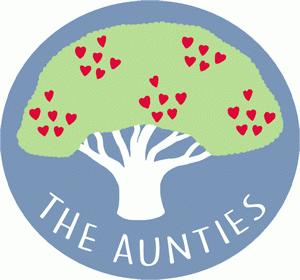Through The Aunties, the group she formed in 2013, Jackie Clark not only changed the lives of countless women and children, she also influenced how New Zealanders talked and thought about giving.
The practical needs of a small refuge in South Auckland led to Jackie starting the group. An adept social media user, she rallied supporters via Twitter and Facebook to gather up things the women and children needed, and delivered them. Those responding to her requests for clothing, food, and cash (to pay for needs such as phones, school uniforms, dentistry, and car repairs, as well as small extras) became known as The Aunties.
In 2016, Jackie decided to formalise the group and make it a charity. The Aunties became a registered charitable trust in 2017. Their Givealittle page stated their mission:
[E]veryone has the right to be safe, to have shelter, to be fed, to be loved, to dream, to read, to write, to have their say, and to be heard. Where any of those things are missing, the Aunties’ mission is to help provide them – the practical things, and also in terms of advocacy and pastoral care. [1]
The group believed in ‘manaakitanga – protecting the mana of the people they help so that they can find their way towards living independently, and with dignity and joy’. [2]
As the ‘Auntie in Charge’, Jackie worked to provide the interface between a number of community organisations and those who sought to support them in a practical way, by supplying clothes, toiletries, food, or workshop fees. As well as collecting clothing and toiletries, she bought groceries for women who sent her their shopping lists and paid for many of life’s essentials, as well as for the little things bringing women and children joy.
The Aunties by then comprised both those who gave money, or goods – furniture, clothes, bedding, towels, heaters, whatever the women in need asked for – and the women themselves, who formed peer support groups, advocated for one another, and organised the storage unit where donations were kept. A number of the Aunties also built relationships with individual women, providing them with emotional and material support.
In early 2018, The Aunties set up a special fund to pay Jackie for her work. After five years of dedicating her life to The Aunties (and giving up her job as a teacher), Jackie started being paid each month by supporter subscription. It was a testament to the esteem the group had for her that they wanted to support her work in this way.
Jackie’s approach to working through The Aunties challenged New Zealanders to think about giving. Her ‘No Tinned Tomatoes’ campaign hit the headlines just before Christmas 2017, during a food drive to fill the pantry of the Te Whare Aio Māori Women's Refuge. Because of her hands-on experience, she knew that refuges were likely to be inundated with tins of tomatoes (and chickpeas). As she later pointed out, these were useless because women in crisis rarely cooked from scratch, nor did they have all the other ingredients required. What they needed was something comforting and simple to prepare, but ‘No tinned tomatoes, thanks’. [3]
This challenged many people who simply assumed such items would be useful, or believed that ‘beggars can’t be choosers’. Quickly picked up online, the resulting debate ‘made the front page of The Dominion Post on Monday, followed by radio, print and television media for days’. [4]
Jackie’s response was consistent – ‘Women on the run don't cook … for God's sake ring your refuge and ask what they need. It won't be tomatoes’ – and was quickly backed up by other charities. [5] In terms of public relations, her campaign was described as:
one of the biggest public relations coups in the 2017 charity sector. At a time when we all know we should be thinking of others and giving back – this story brought the whole idea of charitable giving to life simply and effectively. [6]
The clear message was that charities were not a place to dump useless or second-grade goods, because real people deserved better. Everything must be given with love. This was firmly stated for potential donors on the group’s website:
Please always bear in mind that, in any given year, we service and care for a lot of people, most of whom are dealing with the fall out of family/street or intimate partner violence. Their needs are many, and our aim is to provide them with as many of those needs as is practicable. We keep up with most needs but we always need more. And our kaupapa is meeting needs with aroha. If you don’t give with love, then please give to another charity, and not to us. This is the way this has to be. [7]
At the 2018 Westpac Women of Influence awards, marking the 125th anniversary of women’s suffrage, the importance of this approach was recognised when Jackie won the Community and Not for Profit award and became overall supreme winner. In the 2019 Queen’s Birthday Honours, she was awarded a QSM.
Michele A’Court and Paul Brislen
Notes
[1] www.givealittle.org/theaunties
[2] www.givealittle.org/theaunties
[3] Jackie Clark, Facebook post, 11 Dec. 2017.
[4] Allen, Sue, ‘Hype about tinned tomatoes has raised the debate on giving’, Stuff, 19 Dec. 2017, https://www.stuff.co.nz/business/opinion-analysis/99946985/hype-about-tinned-tomatoes-has-raised-the-debate-on-giving
[5] Fallon, Virginia, ‘Give generously –but please no tinned tomatoes or chickpeas, say charities’, Stuff, 12 Dec. 2017, https://www.stuff.co.nz/national/99767397/give-generously--but-please-no-tinned-tomatoes-or-chickpeas-say-charities
[6] Allen, 2017.
[7] https://www.aunties.co.nz/how-you-can-help-us/
Further sources
The Aunties website: https://www.aunties.co.nz/


Community contributions